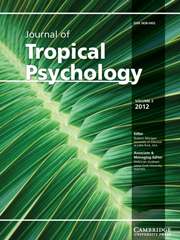No CrossRef data available.
Article contents
The role of Chinese names in identity formation: a primer for psychoanalysts and psychotherapists
Published online by Cambridge University Press: 22 August 2013
Abstract
There have been many important psychoanalytic studies on the importance of names on the development of identity. None of these studies, however, have specifically examined Chinese names and their effect on development of identity in Chinese patients. Chinese names differ in many important ways from names used in Western cultures. This paper provides a basic description of the nature, structure and meaning of Chinese names and suggests ways that these names help form a sense of identity in the Chinese.
- Type
- Articles
- Information
- Copyright
- Copyright © The Author(s), published by Cambridge University Press on behalf of Australian Academic Press Pty Ltd 2013




